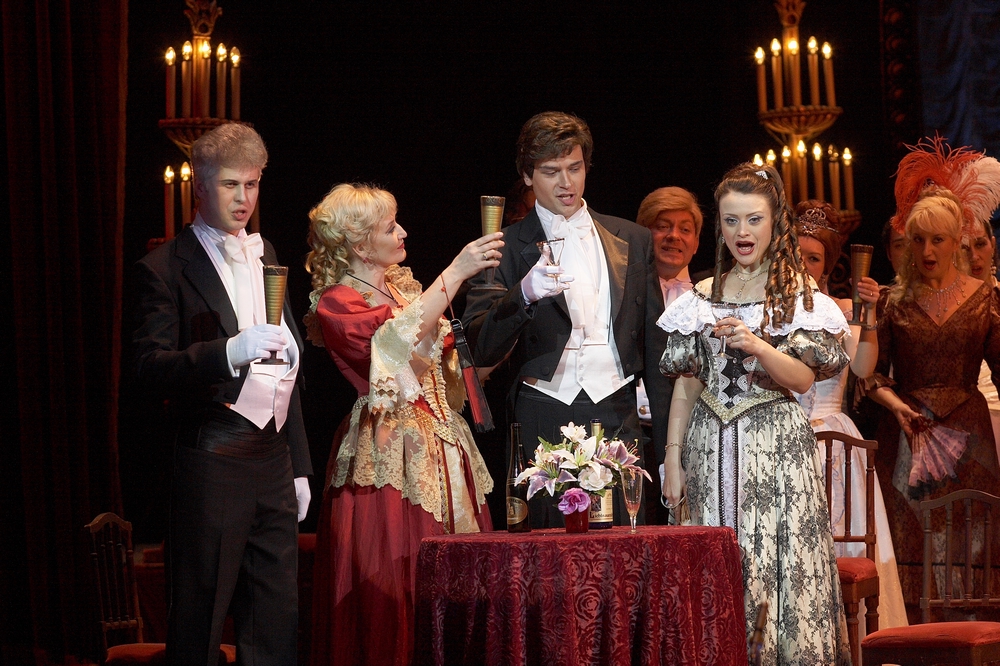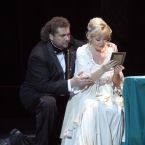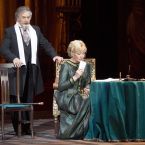La Traviata — fallen, stray (ital.)
... She lived some lives. The first flew is dazzling and rapidly (Mari Dyuplessi), another was embodied on pages of the novel of Aleksander Dumas son (Margarita Gaultier). And the third life of the beauty (already under a name of Violetta Valéry) is presented to her by ingenious music of Giuseppe Verdi and proceeds the second century.
In the forties of the last century the name of Mari Dyuplessi was widely known to Parisians. The rare beauty, native wit and charm of the young girl helped her to become one of the most fashionable stars of the Parisian demimonde. Among her numerous admirers there were composer F. Liszt, the poet T. Gaultier. The love story of Mari Dyuplessi and the young beginning writer Aleksander Dumas son formed a basis for the novel "The Lady with Camellias". The rumor attributes their gap and the followed Dumas's travel to insistance of his father — the glorified author of "Three musketeers". Having returned to Paris, Dumas didn't find Mari in the live — she died of tuberculosis in 1847, without having reached also twenty five years. The novel "The Lady with Camellias" did a lot of noise in societe, in its heroine Margarita Gaultier all recognized Mari Dyuplessi, and in Armand Duval were inclined to see the author.
Soon on the basis of novel Duma wrote the play. The premiere which took place in 1852 made a tremendous success. The play was popular in all countries of Europe.
On the Parisian premiere "Ladies with camellias" there was Giuseppe Verdi. The play made on him strong impression. At the composer the impudent plan of creation of the original opera is born on this modern story. For work one of the best librettists of that time — F. Piave is attracted. However the premiere of the opera which took place on March 6, 1853 on a scene of the Venetian theatre "La Fenice" came to the end with a scandalous failure. "Traviata" failed last night. My fault or singers?... time will judge" — Verdi wrote after premiere.
In a year, put at other Venetian theatre, "Traviata" made huge success and for some years, was forever fixed in repertoire. When Duma got acquainted with Verdi's opera, he exclaimed: "In fifty years nobody would remember "The lady with camellias", but Verdi immortalized her".






















